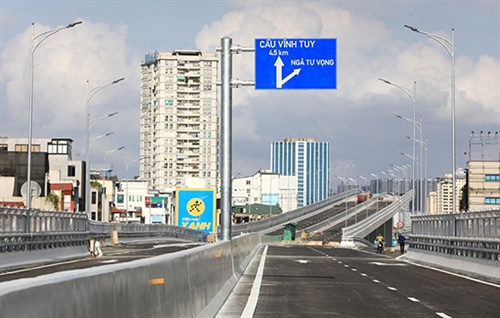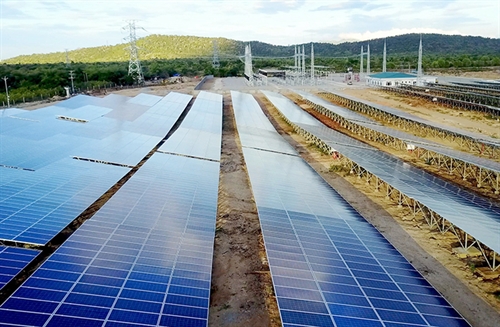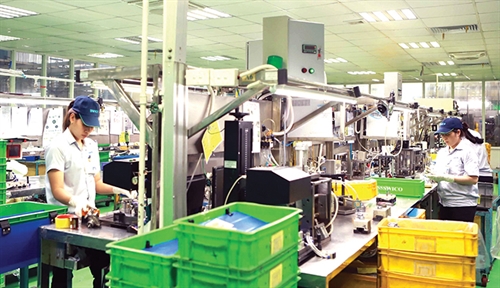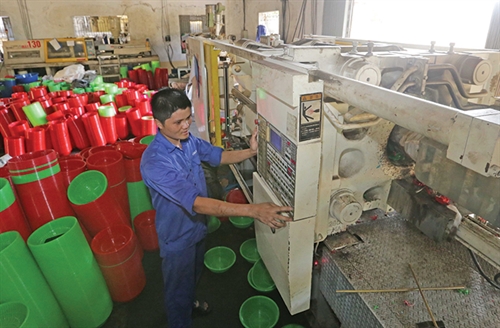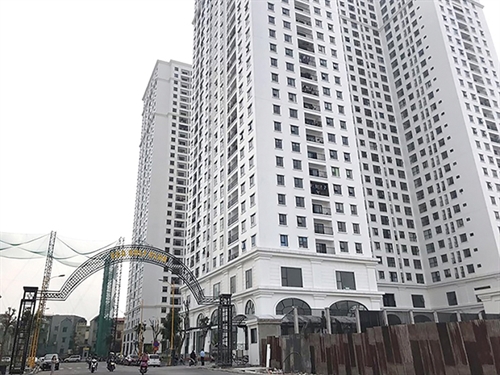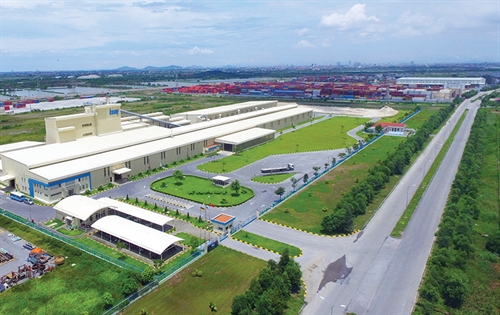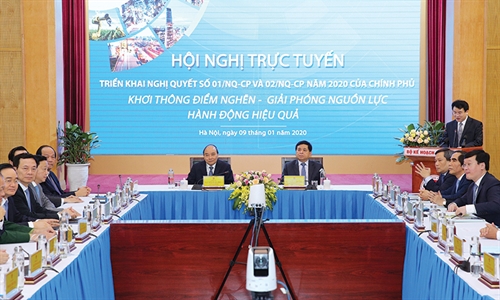The guiding text of the 2019 Law on Tax Administration has recently been issued by the Government with a series of new provisions designed to create convenience for taxpayers and reduce tax-related compliance costs while increasing the effectiveness of tax administration activities.
The Decree, coded 126/2020/ND-CP, came into force on December 5 and will apply to the 2021 fiscal year.
Cases not subject to tax declaration
In order to reduce administrative procedures for taxpayers, Decree 126 points out five cases in which a taxpayer is not required to submit tax declaration dossiers:
(i) The taxpayer carries out only operations or business activities which are not liable to tax in accordance with relevant tax laws;
(ii) The taxpayer is an individual earning tax-free income as prescribed by the law on personal income tax (PIT) or having a payable tax amount on income from salary or remuneration of VND 50,000 or less, except cases in which he/she receives real estate as inheritance or gift or transfers real estate;
(iii) The taxpayer is an export-processing enterprise that conducts no activity except export (for value-added tax);
(iv) The taxpayer suspends its/his/her operations or business under Article 4 of Decree 126; and,
(v) The taxpayer has submitted a dossier of application for invalidation of its/his/her tax identification number, except cases of termination of operation, termination of contracts, or reorganization of enterprises.
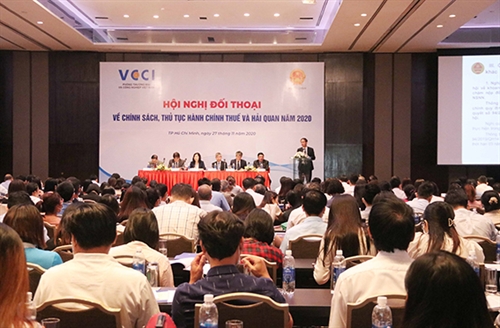 |
| The 2020 dialogue conference on tax and customs policies and procedures in Ho Chi Minh City on November 27__Photo: VNA |
Provision of information on taxpayers’ payment accounts to tax offices
Under Article 30.2 of Decree 126, at the request of tax administration offices, commercial banks will provide information on payment accounts of taxpayers, including the following details for each account: name of account holder, account code based on the tax identification number granted by the tax office, and account opening date and closing date.
Hence, commercial banks will only provide tax offices with basic identity information relating to taxpayers’ payment accounts but not information on transactions via such accounts.
The first-time provision of account information under Decree 126 is scheduled to be conducted within 90 days from the effective date of the decree, December 5. After that, information will be updated on a monthly basis within the first 10 days of the subsequent month.
Speaking at a press conference held early this month to introduce Decree 126, Luu Duc Huy, Director of the General Department of Taxation (GDT)’s Policy Department, said commercial banks will have to withhold and pay tax on behalf of overseas suppliers that do not have permanent establishments in Vietnam but conduct e-commerce or digital platform-based business activities and derive incomes from individual customers in Vietnam (foreign e-commerce contractors).
Specifically, in case overseas suppliers have not yet made tax registration, declaration and payment in Vietnam, commercial banks and payment intermediary service companies will be required to withhold and pay tax on behalf of foreign e-commerce contractors for each product or service they sold to Vietnamese individual customers.
The GDT will identify and make public names and websites of overseas suppliers not yet made tax registration, declaration and payment.
In case banks and payment intermediary service companies cannot withhold tax because customers make payment to foreign e-commerce contractors by cards or other methods, they will monitor money amounts transferred to overseas suppliers and report such to the GDT on a monthly basis.
In addition, banks will also be required to make a list of domestic individuals receiving payments from foreign e-commerce companies such as those who earn advertising revenues from Facebook, Google and YouTube and provide such list to tax offices at the latter’s request.
Also at the press conference, Deputy Minister of Finance Ta Anh Tuan revealed that his ministry had managed to collect thousands of billion dong of tax from transnational e-commerce companies such as Netflix, Google and Facebook.
According to Deputy General Director of Taxation Dang Ngoc Minh, the provision of taxpayer information will neither cause difficulties to banks nor adversely impact their clients. This requirement only aims to facilitate coordination between tax offices and banks, thus preventing tax revenue loss and improving the effectiveness of tax administration in the field of e-commerce.
Minh affirmed that tax administration agencies will have to keep information confidential and be held fully responsible for information security in accordance with law.
“The Ministry of Finance is going to issue a circular to guide the implementation of Decree 126,” Minh said, adding that the ministry will invite overseas suppliers to work with Vietnamese tax authorities as well as tax consultants to help them accurately understand Vietnam’s tax regulations concerning cross-border provision of services and properly perform their tax obligations.
Agreeing with the GDT’s viewpoint, Nguyen Thi Cuc, a representative from the Vietnam Tax Consultants’ Association, stressed that it is banks’ responsibility to provide information but tax offices must ensure confidentiality of taxpayer information in accordance with the Law on Tax Administration. Tax offices are permitted to disclose information on taxpayers’ incomes only in case taxpayers commit violations and shirk their tax obligations.
Declaration and payment of PIT on bonus and dividend shares
Under Decree 126, investors earning proceeds from the sale of bonus shares or stock dividends will not be required to declare and pay tax by themselves but will have this job performed by others on their behalf.
Specifically, for securities listed on the Stock Exchanges, securities companies or commercial banks where investors open securities custody accounts or fund management companies which manage investors’ investment portfolios will make PIT declaration and payment for investors.
As for securities of public companies which are not traded via the Stock Exchanges but have been registered for custody at the Vietnam Securities Depository, securities companies or commercial banks where investors open securities custody accounts will carry out PIT declaration and payment procedures for them.
For securities of non-public joint-stock companies which have authorized securities companies to manage the former’s shareholder lists, PIT declaration and payment shall be conducted by the authorized securities companies. For securities other than those mentioned above, it is the securities issuers that will be obliged to settle PIT duties on behalf of investors.
In case individual investors receive dividends as capital gains, the institutions where the investors contribute capital will declare and pay PIT on the income from capital investment for investors when the latter transfer or withdraw their capital contributions.
Similarly, for those who contribute capital in real estate, capital contribution or securities, the institutions to which the investors contribute capital will settle PIT on behalf of the investors for the income from transfer of real estate, capital contribution or securities.
Exemption from PIT finalization declaration for non-residents
Under Decree 126, individuals will have to themselves make tax declaration and finalization with tax offices if their paid tax amounts are either insufficient or surplus, except:
(i) Individuals whose PIT amount to be additionally paid for each year after making tax finalization is VND 50,000 or less;
(ii) Individuals whose payable PIT amounts are smaller than the temporarily paid PIT amounts, provided that they do not request tax refund or clearing of the overpaid tax amounts against payable tax amounts of the subsequent tax period;
(iii) Individuals who have incomes from salaries or remuneration under employment contracts of a term of at least three months with one employer and concurrently earn a monthly average amount of at most VND 10 million from other resources for which PIT has been withheld at the rate of 10 percent and do not request tax finalization; and,
(iv) Individuals whose employers buy life insurance (except voluntary pension insurance) or other optional insurances with accruals of insurance premiums for them and the employers or insurance companies have withheld PIT by 10 percent of the insurance premium amounts paid by the employers for the employees.
Temporary payment of corporate income tax (CIT)
Under the Law on Tax Administration, enterprises are obliged to temporarily pay CIT on a quarterly basis and make tax finalization on a yearly basis.
Decree 126 goes on to specify that the total amount of CIT temporarily paid in the first three quarters of a tax year must not be lower than 75 percent of the total CIT liability for the year based on tax finalization.
In case the total amount of CIT temporarily paid by a taxpayer in a tax period is smaller than the final payable CIT amount by 20 percent or more, the taxpayer will have to pay late-payment interest on the shortfall, counting from the day following the deadline for payment of CIT for the last quarter to the day it/he/she pays the deficit to the state coffer.
As explained by Le Thi Duyen Hai, Director of the General Department of Taxation’s Tax Declaration and Accounting Department, enterprises may be unable to determine the payable tax amounts of each quarter right at the beginning of the year but after three quarters, they may assess their business situation so as to calculate the CIT amounts to be temporarily paid for the first there quarters in a relatively accurate manner.- (VLLF)
